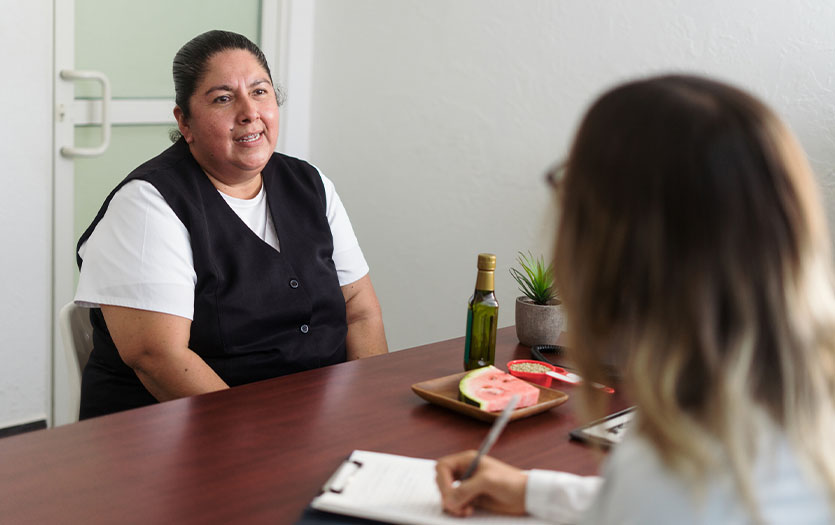
Currently, there is no known cure for type 2 diabetes, but it can be effectively managed with significant lifestyle adjustments. For some individuals, it can even go into remission. In a study published by the American Diabetes Association (ADA) over ten years, among nearly 2.3 million people with type 2 diabetes, approximately 9.7 out of every 1,000 people experienced remission each year. For those diagnosed within the last year, the rate was higher at 44.9 in 75,610 people. In this post, we examine remission for individuals diagnosed with type 2 diabetes, when it's most likely to occur and recommendations for getting started.
Type 2 diabetes: Overview
Type 2 diabetes is a disease that develops when the body's tissues become resistant to insulin, and the pancreas cannot produce enough insulin to help the body convert glucose (sugar) from food to energy. Without insulin, glucose cannot get into the cells to do its work. Instead, it stays in the blood, causing elevated blood sugar levels (hyperglycemia). Over time, the damage caused by increased glucose, in addition to diabetes, can lead to diseases of the heart, blood vessels, nerves, kidneys and eyes. The fundamentals of lowering blood sugar involve losing weight, eating a balanced diet and exercising regularly. Some individuals may also need to take insulin or other diabetes medicine.
What does it mean for type 2 diabetes to be in remission?
Remission is a term commonly used in discussions around cancer recovery. It refers to a reduction in the severity or intensity of a disease, indicating a temporary recovery. For individuals living with type 2 diabetes, remission consists of maintaining an A1c of 6.5% or lower without using diabetes medicine for at least three months.
Those whose bodies can still make insulin and don't need medication can achieve remission with weight loss, diabetes-focused healthy eating and exercise. However, when this condition is in remission, there remains a higher-than-normal risk of relapse. Continued adherence to healthy lifestyle choices is crucial to maintaining remission.
Remission is most likely:
-
In the early stage of diabetes, before medicine is needed.
-
After a significant weight loss.
-
Following bariatric surgery, which can trigger healthy changes in the body's insulin system.
Remission becomes less likely in the advanced stages of diabetes due to the gradual decline in the body's ability to produce insulin.
Steps toward remission
Achieving remission requires dedication and a proactive approach. Here are a few helpful tips to get started:
-
Adopt a balanced diet focusing on whole foods, plenty of vegetables, lean proteins and whole grains.
-
Aim for at least 30 minutes of moderate activity daily.
-
Regularly monitor your glucose levels to understand how your body responds to different foods and activities.
-
Drink plenty of water and avoid sugary beverages.
-
Limit alcohol intake and be mindful of its effects on your blood sugar.
-
Quit smoking if you are a smoker.
-
Manage other health concerns, such as high blood pressure and cholesterol.
-
Work towards maintaining a healthy weight through diet and exercise.
Does testing change after type 2 diabetes is in remission?
Type 2 diabetes remission is not well understood, and the duration of remission can vary from person to person. Even after maintaining blood glucose levels, patients in remission should continue regular monitoring for any changes. Testing and examination for other health problems related to diabetes, such as foot checks and eye exams, should also continue.
Final thoughts
There's no way to know in advance if type 2 diabetes will go into remission. It happens for some people and not others, even if they have the same diet, exercise, weight loss or weight-loss surgery. Experts don't fully understand why.
In the same study, the ADA found that the remission rate in a community setting with standard clinical care is relatively lower. The highest likelihood of remission was observed in intense clinical settings with customized lifestyle intervention programs.
At Parkview, our dedicated health professionals are here to help you manage the various aspects of diabetes self-care and aid you in your journey toward remission. If you have additional questions or concerns about managing your type 2 diabetes, call Parkview Diabetes Care Services at 260-373-4280 to speak with a diabetes educator, registered dietitian or lifestyle change specialist.
Parkview and Best Buy
Purchasing the medical and wellness products you need is easier than ever. Parkview and Best Buy have teamed up to provide a curated list of glucose monitors, blood pressure monitors and more. Explore the products now.
Copyrighted material adapted with permission from Healthwise, Incorporated. This information does not replace the advice of a doctor.



